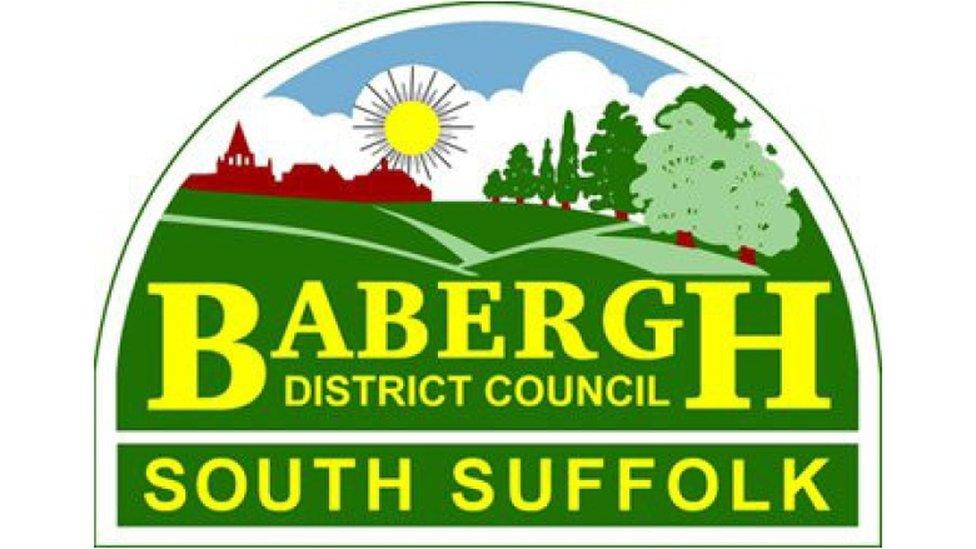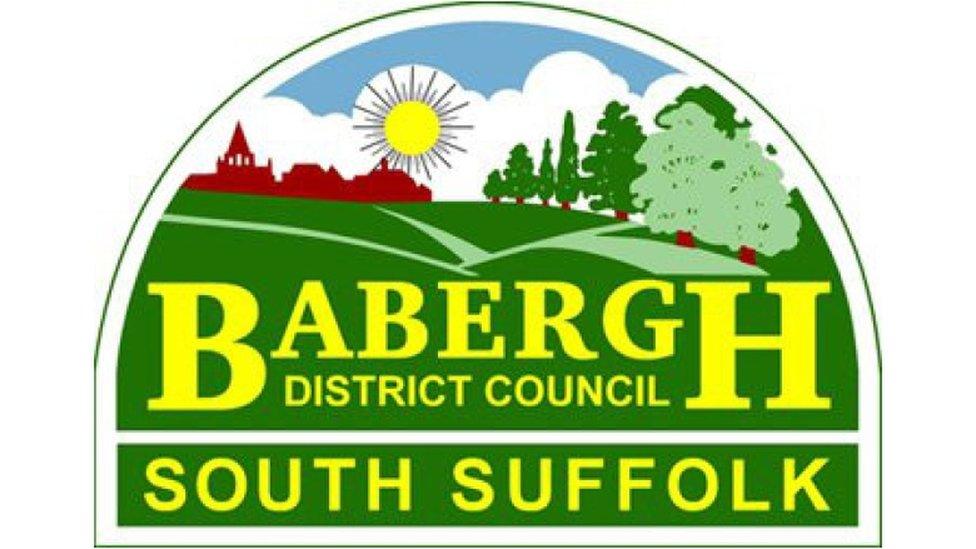Babergh District Council: Authority 'no-one can pronounce' halts name change until 2021
- Published

Babergh District Council takes its name from the Anglo Saxon name Barberga
A council whose name people struggle to pronounce has halted plans to change the name for at least two years.
Suffolk's Babergh District Council - pronounced "Bay-ber" - takes its name from the Anglo-Saxon place name Barberga and has existed since 1974.
Last month it announced plans to rename itself South Suffolk Council, at a cost of about £10,000.
This month's meeting scheduled for a decision has been postponed. Any name change is now unlikely before 2021.
The council's deputy leader Clive Arthey said: "We recognise that there's a lot to consider and want to provide more time for all councillors to fully consider the potential benefits, implications and costs before meeting to reach any decision."
At the time it announced plans, the authority's leader John Ward said people were "often unaware of exactly where Babergh is and even struggle over its pronunciation".
Mr Ward added the name change would allow them to "be clear about who we are, where we are and what we represent".

'Bay-ber'
According to Dr Jenny Amos, lecturer in English at the University of Suffolk, there are two likely possible derivations of the word Babergh.
A compound of the name 'Babba' and the Anglo Saxon word for 'stronghold' (burh or burg)
In the Domesday Book, 'Babergh' was also 'Badberge'. The Old English for 'hill' was beorg or beorh
She said sounds continuing into modern language was possibly responsible for the pronunciation.
The Old English sound 'æ' has modern equivalents in a word like 'bade', which likely explains the first syllable but sounds like 'gh' have been silenced over time, explaining the second syllable
Dr Amos said: "Put all that mess of linguistic history together, and you end up with 'bay-ber'."
- Published19 September 2019
